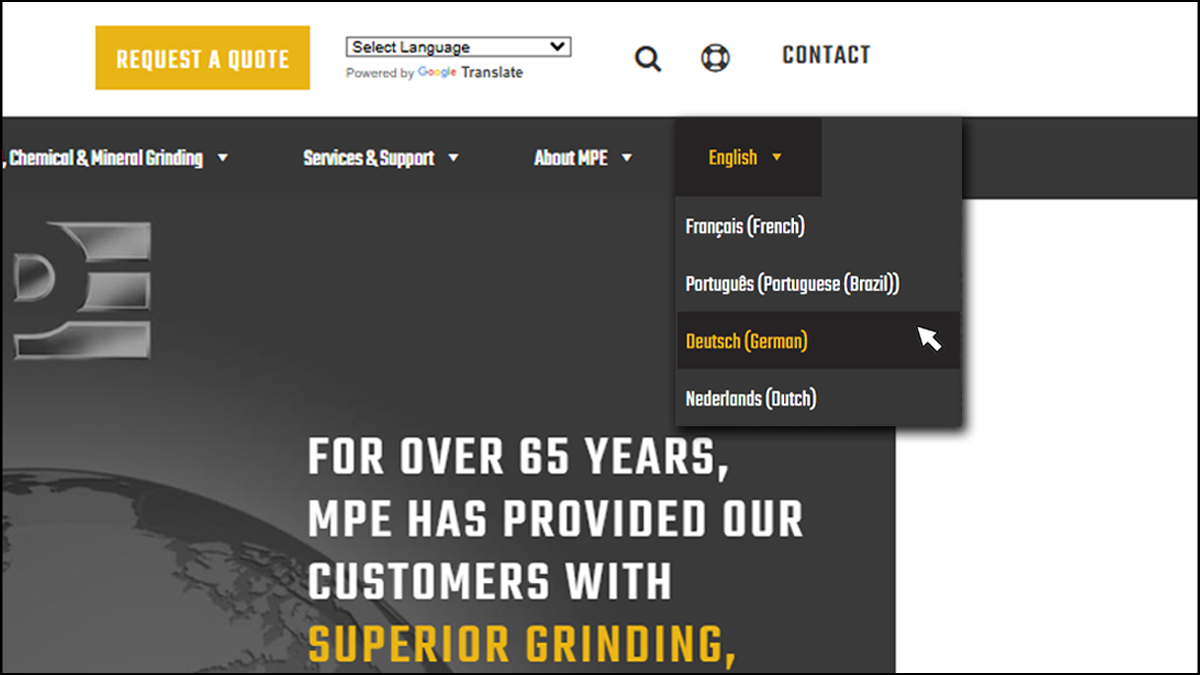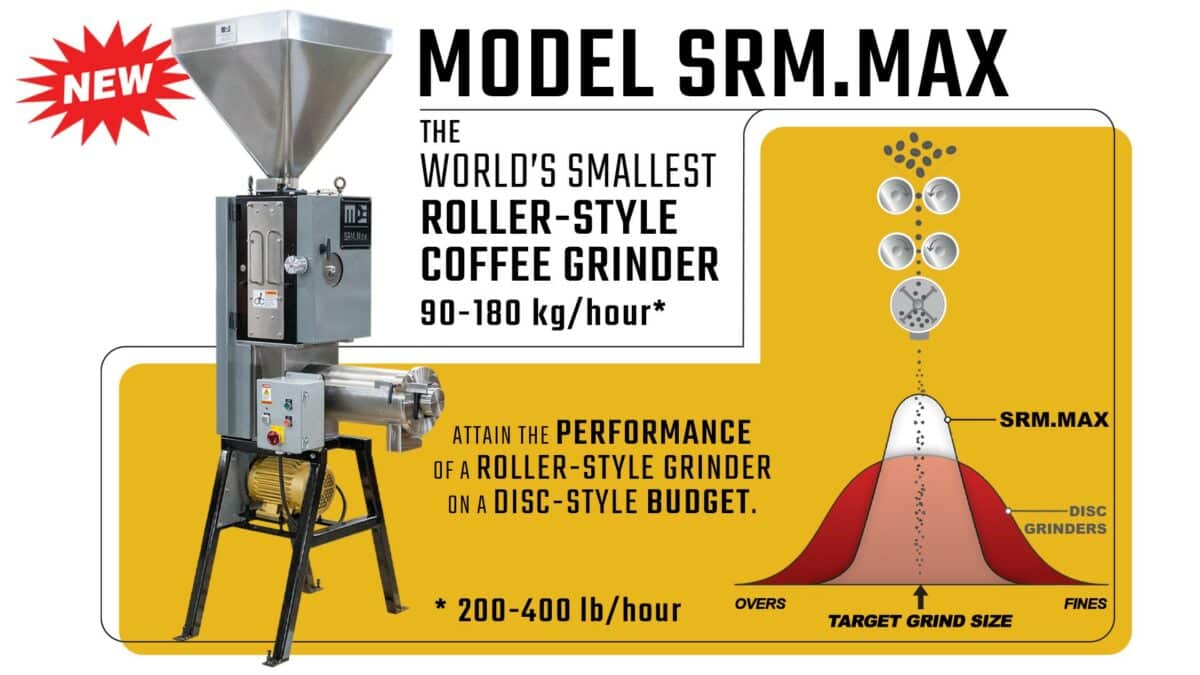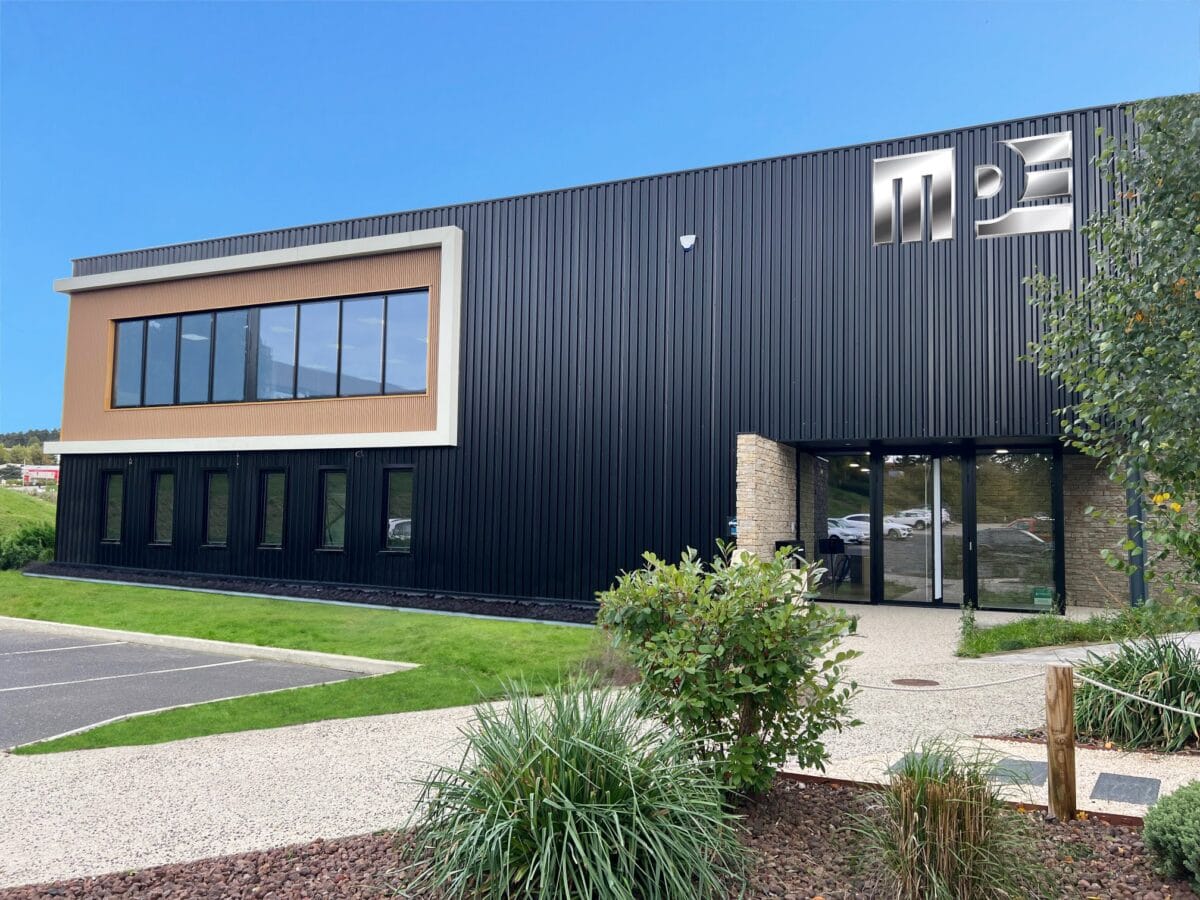When developing a new product or service, Modern Process Equipment (MPE) Corporation is driven by one core question: “What if?” What if there was a way to make a better product, a better technology, or a better process to improve what’s available on the market, or for the most part,
what’s not available?
That very question has driven the Chicago-based gourmet and industrial coffee grinder manufacturer and conveyor production facility since brothers Daniel and Philip Ephraim took over the company in 1982.
“Ninety-seven per cent of the products that we sell today were either not in our wheelhouse nor invented 37 years ago,” MPE Co-Owner Daniel Ephraim says. “We like to think that over the next 30 or 40 years most of what we sell are things that have not been invented yet. In this way, we know that we have provided the technology to service our customers.” Ephraim, an engineer by trade, was Vice President at one of the largest institutional coffee companies in the United States before becoming President of MPE in 1982 when he and his brother purchased the company.
“We decided it was time to jump out on our own and run our own show. Modern Process, at that time, was a company I did business with
[specialising in the reconditioning of roller-style coffee grinders]. Founded in 1957, it was a small company with a stellar reputation. We begged, borrowed, and stole until we were able to buy the company and see what we could do. I had a strong entrepreneurial urge,” Ephraim says. “I like to think the business had a lot of kinetic energy when we bought it, and it proved to be a good nucleus. Our customers gave us a chance to grow with them.”

In the early 80s, Ephraim says there were only really three companies who controlled nearly 60 per cent of coffee production in the US: the major canned coffee brands. The industry was very much a “generic one”, with the specialty industry yet to really make its presence known. When it did, however, MPE saw the opportunity to support its growth by making grinders for a multitude of applications, including instant and coffee capsules.
“Nobody foresaw the capsule or pod business. There’s no question that more coffee is ground for filter type of applications than any other. However, the equipment demand is more towards single serve for pods and capsules, the most technical and scientific type of grinder application, and we lead the world with those types of grinders,” Ephraim says.
Much like the expansion of the capsule industry, Ephraim says the next big evolution will be something unexpected. “The one thing that is here to stay is convenience. People also want better quality products, so if these two things combine, they will create great opportunities down the line,” he says.
MPE has always created products and services that push the boundaries. Ephraim says three quarters is evolutionary, one quarter is revolutionary.
One of the first revolutionary products was MPE’s Model 888 FT Turkish Granulizer, which Ephraim describes as a “revolutionary development in the production of Turkish coffee utilising modern technology”. Before the FT, stone grinding was used to produce the world’s Turkish coffee supply. These grinders would typically develop a lot of friction, become extremely hot, and burn the coffee. Most of the “good” volatiles and aromatics boiled off at the low temperature of 40°C, but the stone grinders heated up to 100°C, and would regularly have to be turned off to cool.
However, by using a super hard material eight times as hard as chrome, developed by the National Aeronautics and Space Administration, as well as other technologies essential to producing 150 billion particles of coffee particles hourly, MPE developed a state-of-the-art grinding technology. Ephraim says MPE became the overall product leader in the world for Turkish coffee grinders.
Ephraim has Lebanese customer George Najjar of Cafe Najjar to thank for the inception of this grinder technology.
“He sent a fax asking us to make him a grinder for Turkish coffee. I didn’t hear back until a year later. Within the intervening year he’d gone out and talked to all the other coffee grinder manufacturers in the world. Eventually he said, ‘I’m ready now. No-one can make me a Turkish coffee grinder worldwide so I want you to do it.’ I didn’t know if we could but George challenged us,” Ephraim says. “He said: ‘you Americans can do anything.’ I felt patriotic so I said, ‘OK let’s do it’. We ended up replacing Cafe Naijar’s 80 stone grinders with a single FT.”
Within five years, MPE’s technology became the standard for virtually every major Turkish coffee manufacturer in the world, and Naijar become the leading Turkish coffee producer in Lebanon and the Middle East.
On the other end of MPE’s revolutionary products list is its more recent development, the In Situ grinder, an idea borne again for customers asking “what if?” What if a coffee grinder could be placed on top of a packing machine?
Ordinarily, ground coffee for capsules or pods is supplied via a larger grinder at the floor level and coffee is transferred through conveying systems to the packaging machine. Alternatively, the customer resorts to a disc-style grinder. However, rather than placing a large three-tonne grinder on top of a packing machine, MPE has developed a small roller grinder a quarter of the size, but with all the same technology incorporated from its large grinders. As such, it can sit on top of capsule packaging machines and supply an optimal grind.
MPE has grown over 50-fold since 1982, with 97 per cent of its products new. Its goal is to continue to grow, and in another 37 years, have the majority of its products be those not yet invented. Ephraim attributes the growth of the company to its ability to generate new products and services in all categories of coffee grinding, such as soluble, espresso, capsules, three-in-one coffee, and ultra fine coffee types.
More than just a grinder manufacturer, Ephraim says the company’s expansion into conveyors is a big contributing factor to its growth. Again, in response to being asked “what if?”, nine years ago MPE developed the Chain-Vey conveyor system, designed for the gentle and effective transport of green and roasted whole bean or ground coffee. This system delivers coffee from grinders to packaging machines without degradation and in the most gentle way possible. The Chain-Vey conveyors have contributed to Starbucks Reserve’s Willy Wonka-inspired fit-out with models helping direct beans in overhead tubing as customers stare at the futuristic transporting model.
“The Chain-Vey has become an overwhelming favourite for customers all over the world,” Ephraim says. “It came about as a result of a customer complaint about the conveyers available on the market at the time, which is generally how new ideas evolve. We talk to customers every day around the world. Our close relationships and interaction with our customers have provided MPE with a treasure chest of ideas over the years.”
That includes the impetus for MPE to expand into processing systems, a complete solution to take coffee beans from the dock, to silos, to cleaners, to roasters, and then to the grinder. MPE has since become one of the leading providers of coffee production facilities. It installed its first processing system about 17 years ago, and in 2008, was involved in building the North American Processing Plant of the Year.
“We believe that our company has a strong reputation for designing and manufacturing high quality products for the coffee industry because we are engineering-centric. Nearly all of our staff have engineering degrees, from our salespeople to our engineers, factory workers to management staff,” Ephraim says. “We love designing and we are committed to providing our customers with the ‘golden rule’ level of service.”
That golden rule largely stems from the family-run company that treats its employees and customers as an extension of its family.
“The integrity of our company has always been of paramount importance. Integrity is not something you build in a day. It is something you can lose pretty quickly if you’re not careful,” Ephraim says. “We really strive to maintain our culture and practices and make sure that we keep up the integrity of the business for our customers – perhaps that’s part of the secret sauce of why our customers feel comfortable working together with us on projects to help make their lives easier.”
As for Ephraim, he feels pretty lucky to have fallen into an industry that has provided him with an exciting career path that’s “anything but just a commodity product.”
This article was published in Global Coffee Review May/June 2019 issue. Download the print PDF version.




